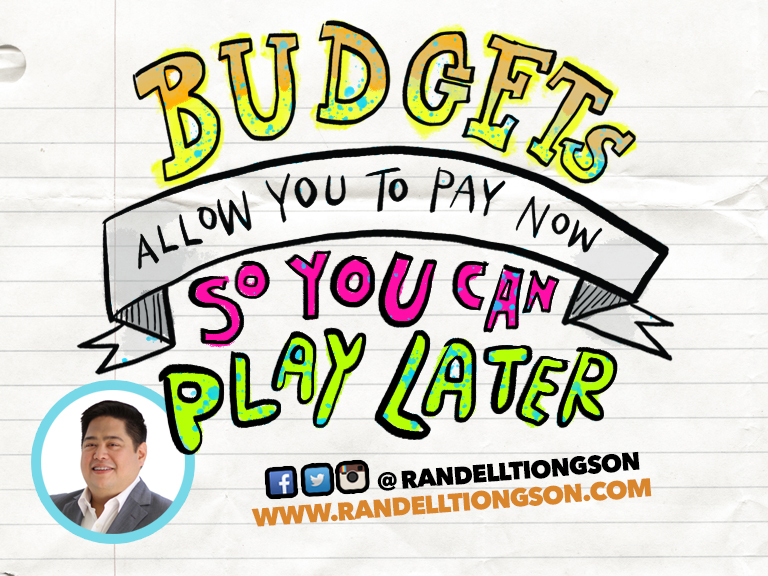Did You Really Save On That Seat Sale Flight?
By Randell Tiongson on July 28th, 2016
Most Filipinos are always on the lookout for seat sales because it’s an affordable way to go abroad. Who wouldn’t be tempted? A ticket from Manila to Cebu can cost up to Php4,488.76 for a regular flight but can cost as low as Php402 when booked through a seat sale. That’s a total of Php 4,086.76 in savings.
This will be applicable in the near future because most of us will be booking our seat sales for the upcoming holiday season. Most airlines are releasing their seat sale promos as early as now to entice people to book their flights.

What most people fail to realize is that one can save on all aspects of the trip. There are many reasons that one can still overspend during the trip because of the emphasis that they already saved on the airfare. Some reasons can also be overlooked because it doesn’t seem it was an opportunity to overspend, but in reality, people spent more than they should have.
Here are the instances you spent more than you should on a seat sale trip:
You did not save on the other aspects of the trip.
Were you able to book discounts for your hotel or hostel? Did you get a group discount for tours during the trip? There are a lot more expenses in the trip that you can get discounts for. Some hotels offer big discounts when they are filling out accommodations in the building. One example is 27% off at Dorsett Mongkok in Hong Kong during summer because the hotel is filling out accommodations in the 27th floor of the building.
Your credit card incurred interest.
If you paid for your seat sale ticket through a credit card and got an interest charge from the bank due to late payments, you will incur additional expenses. The amount may seem insignificant since monthly interest rates on credit cards are usually 3-4%, but this would still equate to lost money no matter how small the amount is.
You extended your trip because the cheaper seats are pegged during weekdays.
A longer vacation due to finding slots for cheaper airfare can equate to having more expenses with a longer travel time. This includes accommodation, fees for activities, and food.
The travel dates that you’ve taken will be non-paid leaves.
“If you are taking a non-paid leave from your full-time job for the trip, you end up losing money,” says Kristine Cenidoza, an HR professional who loves to travel. For example, with a daily rate of Php1,000.00 for an employee and booking a flight out during a Thursday morning, that could equate to Php2,000.00 if those leaves are not paid and you shelled out Php402 for the airfare.
Final Thoughts
Overspending can be avoided through proper planning. Think a lot first before doing impulse buying on seat sale flights. This should make you free from worry and make you enjoy your vacation more instead of getting buyer’s remorse after the trip.
Plan trips properly and always remember that balance is key. Why enjoy today and suffer tomorrow? Budget your money well. If you have properly saved up for a trip and that trip will not cause financial turmoil, then go and enjoy that vacation you have always wanted. As with anything related to personal finance, wisdom is key.

Want to get a copy of my books? E-mail michael@randelltiongson.com to order!

What to do with your retirement fund
By Randell Tiongson on July 19th, 2016
Question: Where should my parents invest their retirement fund and savings?—James Magsumbol via Facebook

Answer: You and your parents are blessed to belong to the minority of Filipinos who have prepared for retirement. It is alarming to note that only a very small percentage of Filipinos prepare for retirement, so they end up being dependents of their children by the time they hit their golden years.
It is a good idea that you are asking about how to invest the retirement fund and savings of your parents. Many retirees make the mistake of not investing money during retirement for they fear they will lose their money or they just want to keep their cash.
While I agree that the bulk of retirement fund and savings should be liquid, part of the fund should be invested not for the sake of capital growth but as a means to preserve the purchasing power of your parents’ funds.
Inflation will not retire just because your parents did. Their retirement funds will still need to grow to catch up with inflation, which is why I recommended investing in some investments that can outperform inflation like bond funds or even balanced funds (mutual funds or UITFs).
Many retirees become short-term oriented when it comes to their money. But the fact is, they will probably live about 15 to 20 years more during retirement (longer hopefully). However, it is crucial to limit the allocation to maybe a maximum of 20 percent of their total money to the investments I mentioned as they are not guaranteed.
I would recommend that you sit down with your parents and take a look at their finances. Establish their monthly needs and go over their forecasted expenditures.
You may want to put as much as 12 to 24 months’ worth of expenses in cash or near cash instruments like savings accounts, time deposits or even money market funds. The rest of the funds can be allocated to other kinds of investments, but always be mindful of the investment risks involve.
After allocating for cash and near cash investments, you may want to consider some mutual funds or UITFs—a good ratio would be 70 percent on bond funds and 30 percent on balanced funds.
Bond funds are relatively safe and, while they are not guaranteed, they are the least volatile among the pooled investment funds. Since bond funds are relatively low-risk investments, don’t expect very good returns from them—they will perform better than inflation but not much better; 2 percent above inflation is a more realistic expectation of bond funds.
The remaining 30 percent can be placed in balanced funds, which are a combination of bonds and equities making them riskier than bond funds. However, the risk also means better returns, and you will need such growth to combat the diminishing impact of inflation to your parents’ retirement funds.
Since you did not specify the age of your parents, my recommendations are meant for retirees that are still not too senior. As your parents age, say 70 to 75, you may want to scale down their investments to lesser risk by removing the balanced funds, reducing the bond funds and greatly increasing their cash and near cash investments. As your parents hit 80 years old, you may want to keep all their funds in cash or near cash investments.
My recommendations are really just some benchmark figures as every situation is unique and people may have different objectives. Be prudent with your parents’ retirement fund. I hope this helps.
Invest or pay your debt first?
By Randell Tiongson on June 27th, 2016
Question: Hi Sir Randell! I’m sorry to take up a few minutes of your time, but I’d like to ask you a question since based from research, you are one of the best personal finance experts in the country, and my concern is very much related to your expertise. My question is: Should I pay my debt first or should I invest, and then use the returns on the investments to pay the debt? I have friends who have been telling me to invest “today rather than tomorrow” but is that smart considering I have debts?—Lia via Facebook

Answer: Hi Lia! I’m always happy to help! My dream is for every Filipino to become financially free, and that starts with education—teaching the basics of personal finance.
However, education is only the first step. Execution is what is important.
The advice I give here will be useless if there’s no follow through, so I deeply suggest that after you read the column, you practice what you read.
Moving on to your question, so should you pay your debts first before you invest?There are numerous aspects to consider, but one of the more significant factors is the interest rate.
Interest rate and ROI
What is the interest rate offered by your credit card company? What is your possible return on investment (ROI)?
If the interest rate on your credit card debt is 3.5% monthly, or 42% annually, and your ROI by buying a “hot stock pick” is 100%, the answer seems like a no-brainer. Invest first and use the 100% ROI to pay the debt.
However, you have to remember the interest on credit cards is guaranteed, while returns on investments are not. You can gain 100%, but you can lose your money as well.
You’ll definitely be accruing interest payments by not paying your full credit card balance. In this case, it would be advisable to pay your debt first and invest later.
Can’t you do both? Invest and pay debt?
Yes, you can if:
You have a surplus of money coming in.
If your bonus or 13th month pay is only a few weeks away, you can use the money to pay both your credit card debt and open an investment account. If you have a credit card debt of P10,000 and are expected to receive your 13th month pay of P20,000, you can use 50% to fully pay your debt and the other 50% to open an investment account.
Your debt amount is small.
If your debt is P10,000 and you are earning much more than that, you have the room to pay your debt and invest at the same time (provided you already have an emergency fund).
Lia, I hope the guidelines here have given you more clarity when it comes to making a decision.
So should a person pay his or her debts first and then invest later? Or he or she can do both?
As you can see from the points above, it really varies and depends on a person’s situation and circumstance. Just remember that if you decide to pay your debts, invest, or balance doing both, you’re taking yourself one step closer to financial freedom.
As always wisdom is needed.






